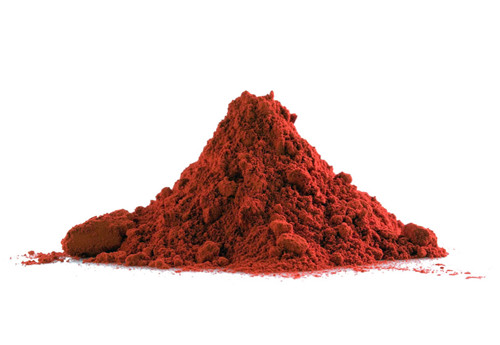Nov. 07, 2020
Astaxanthin, a kind of carotenoid, is a strong natural antioxidant. Like other carotenoids, astaxanthin is a fat-soluble and water-soluble pigment that can be found in marine life such as shrimp, crab, salmon, and algae.
Astaxanthin has the effects of protecting skin and eyes, resisting radiation, cardiovascular aging, Alzheimer's disease, and cancer. Astaxanthin has a strong antioxidant capacity, 550 times that of Vitamin E, and 10 times that of β-carotene. How do you understand the effects of astaxanthin?
Astaxanthin can significantly affect the immune function of animals. In the presence of antigens, it can significantly promote the ability of spleen cells to produce antibodies, enhance the role of T cells, and stimulate the production of immune globulin in the body. Astaxanthin has a strong activity of inducing cell division and has an important immunomodulatory effect.
Astaxanthin can be used as an antioxidant to inhibit the oxidative damage of free radicals to the body. In addition, oral astaxanthin can also strengthen aerobic metabolism, increase muscle strength and muscle tolerance, quickly relieve exercise fatigue, and reduce delayed muscle pain after strenuous exercise.

Studies have shown that astaxanthin can easily pass through the blood-brain barrier and cell membranes, and can effectively prevent oxidation of the retina and damage to photoreceptor cells. In particular, the effect of retinal macular degeneration is more significant than that of lutein. It protects the central nervous system, especially the brain, and effectively treats central nervous system injuries such as ischemia-reperfusion injury, spinal cord injury, and Parkinson's syndrome.
Ultraviolet radiation is an important cause of epidermal photoaging and skin cancer. The strong antioxidant properties of astaxanthin may make it a potential photoprotective agent, effectively removing free radicals that cause skin aging, and protecting cell membranes and mitochondrial membranes from oxidative damage. , Used to prevent skin photoaging.
Studies have shown that astaxanthin has the effect of significantly increasing HDL and lowering LDL in the body, among which HDL can be increased from the original 49.7±3.6 mg/dL to 66.5±5.1 mg/dL, so it is speculated that astaxanthin It can reduce the oxidation of apolipoprotein and can be used to prevent arteriosclerosis, coronary heart disease, and ischemic brain damage.
Navigation
Tel.: +86 29 8832 8887
Mob.: +86 137 5996 2312
Email: info@youbiolife.com
Add.: Room 1007, Block B, Huixin IBC, No. 1 Zhangbayi Road, Xi'an, Shaanxi Province
Request a Quote